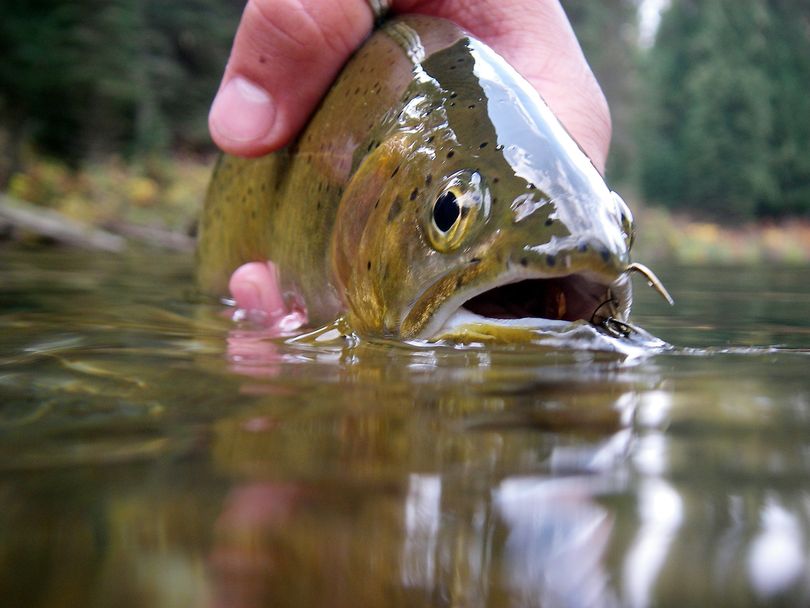North Idaho cutthroat need help from cool heads

FISHING -- Warmer water temperatures being recorded in North Idaho streams and rivers are creating unhealthy conditions for trout, especially the region's westslope cutthroats, Idaho environmental officials said.
A recent analysis by the Idaho Department of Environmental Quality shows that nearly 900 miles of streams in Kootenai and Shoshone counties are reaching temperatures up to 80 degrees in warmer months, well above the optimal temperature of 55 degrees or colder for trout species that attract legions of fly fishers.
The biggest factor to the warming trend is excessive sun exposure and lack of tree cover that provides shade and protection, Kajsa Stromberg, DEQ spokeswoman, told the Coeur d'Alene Press in a story published Tuesday.
In addition, Forest Service and Idaho Fish and Game studies over the years have documented major losses of deep holes and stream structure trout would seek to survive such conditions. Historic mining, logging and road-building practices contributed to the problems.
The region most affected by the warmer waters is the North Fork Coeur d'Alene River Sub basin, a region with a national reputation for producing great cutthroat trout fishing.
The warmer temperatures have a variety of negative impacts on trout, from making the fish lethargic to heightened risk and exposure to potentially threatening disease.
THE GOOD NEWS is that the DEQ is proposing a plan to lower water temperatures and improve access to colder, deeper waters to help reverse the warming trend.
- The strategy includes building more rock structures and logs to narrow and deepen channels and improving access fish have to cold-water channels and natural springs. The plan, now open for public review and comment, would also protect more of the region's shoreline trees from timber harvest managed by the U.S. Forest Service and provide incentives to private landowners.
The agency is taking written comments on the proposal until April 10, followed by a public hearing. The agency will also submit its draft plan to the Environmental Protection Agency for review.
- Email comments to kajsa.stromberg@deq.idaho.gov,
THE BAD NEWS is that the online reaction to the CdA Press story on this issue was dominated by comments suggesting the DEQ's proposal is an example of government waste or a "liberal" reaction to climate change.
God help us if such ignorance is allowed to guide our stewardship of natural resources.
